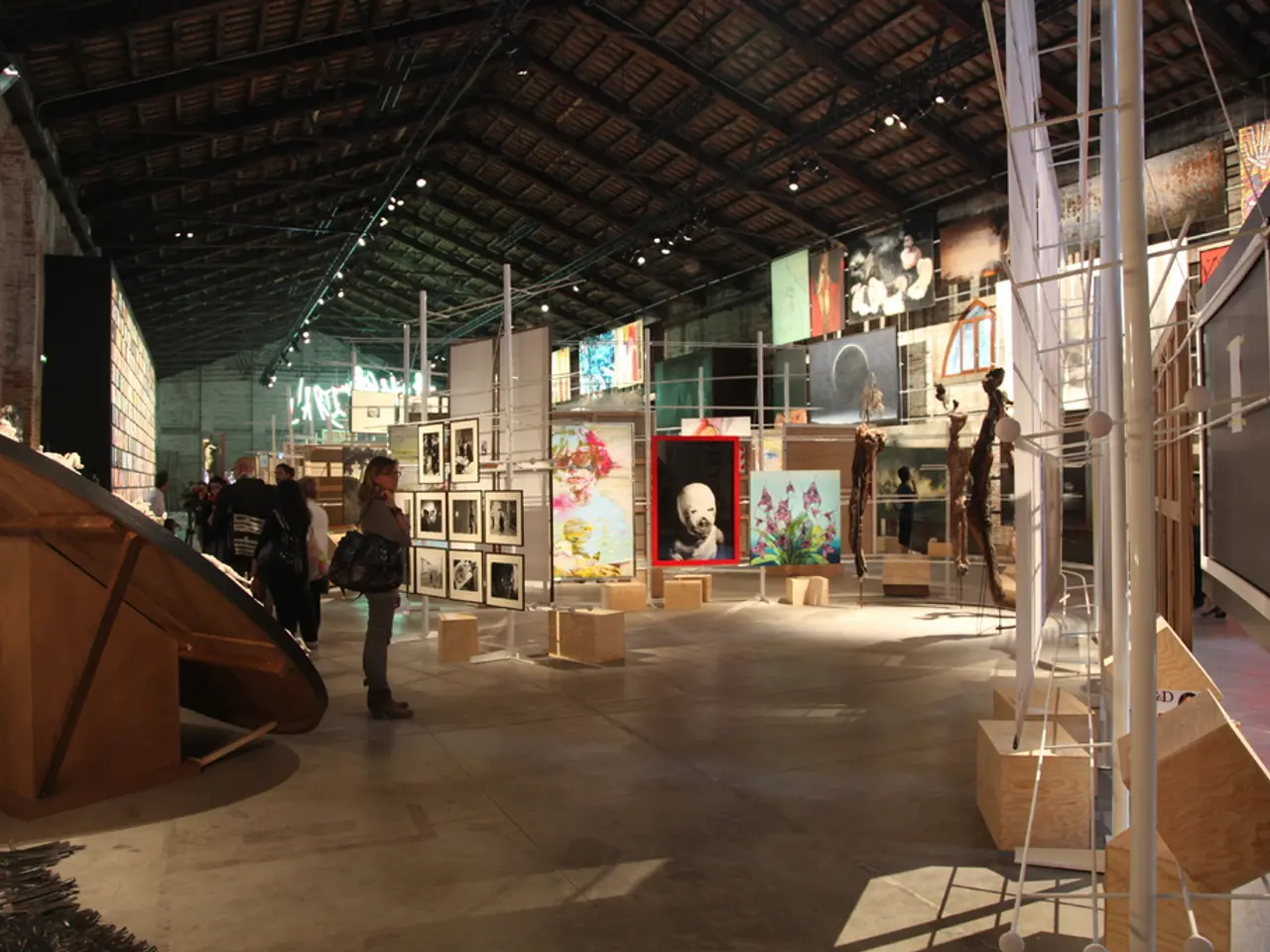Soviet-era Tselinny cinema in Kazakhstan transforms into a center for modern culture
The Tselinny Centre of Contemporary Culture, a significant local landmark in Almaty, Kazakhstan, has undergone a remarkable transformation. Originally a modernist Soviet cinema, it is now a vibrant hub for Kazakh and Central Asian art, having been reimagined by the architectural firm MVRDV, led by the local female architect Zaure Aitayeva.
The entire ground floor of the Tselinny Centre is now on one plane, making it more accessible and visually connected to the external landscape and street. This open layout has led to the creation of a large glazed public foyer, where a glass-fronted cafe and bookshop now reside. At the back, a tearoom offers a tranquil view of St Nicholas Cathedral and the park.
The white-painted steel fins covering the building's glass facade are a nod to the region's pre-colonial past, inspired by nomadic cosmology and the spirits Tengri (sky) and Umai (earth). The large monumental sgraffito by Russian-born artist Evgeny Sidorkin, which was covered during the building's nightclub era, has been remade and installed in the column-free and airy foyer.
The auditorium at the heart of the building, which originally held over 1,500 seats, will host performances, exhibitions, and roundtables. The original steps up to its entrance have been removed, making it more welcoming, and the entrance has been 'digged down until a universal level' was reached.
The Tselinny Centre, founded in 2018 as a privately funded institution, aims to provide a national and international platform for Kazakh and Central Asian art. The centre's director, Jamila Nurkalieva, emphasizes the limited state support for the arts in Kazakhstan and the scarcity of arts venues and galleries in Almaty.
Future additions to the Tselinny Centre include a cafe and rooftop restaurant, yet to open, designed by local female-led architectural practice NAAW. The cafe features earthy organic tones and a communal burnished-stainless-steel table designed in a river-like form. The rooftop restaurant is named after Evgeny Sidorkin's wife, Gulfairus, considered one of the most important Kazakh artists.
The architects of the Tselinny Centre initially faced recommendations to demolish the building due to seismic concerns. However, they chose to reinforce the auditorium internally with a steel frame and rebuild everything around it within the original footprint of the building.
The history of the Tselinny cinema is complex, as it was named after a colonial Soviet agricultural campaign that significantly impacted modern Kazakhstan and marked the end of a nomadic way of life that had endured for thousands of years. Intimate shows will be held in the 'capsule' gallery in one of the foyer's wings, providing a unique and immersive experience for visitors.
The Tselinny Centre of Contemporary Culture is more than just a cultural institution; it is a testament to the resilience and adaptability of Kazakhstan's cultural heritage.




